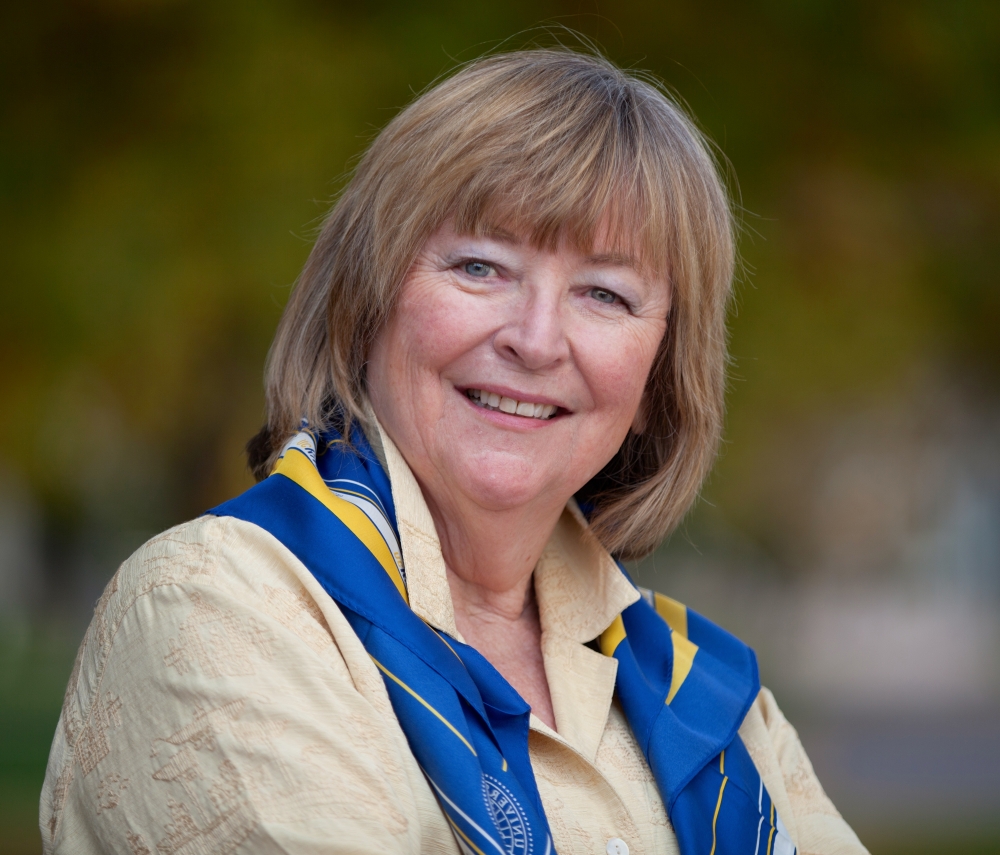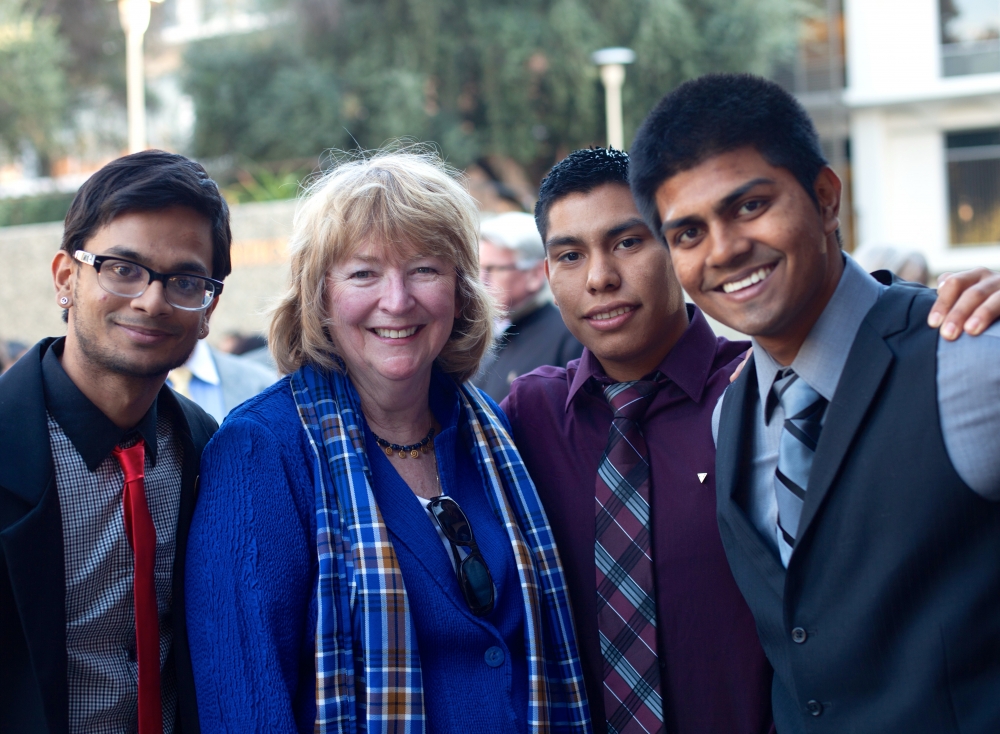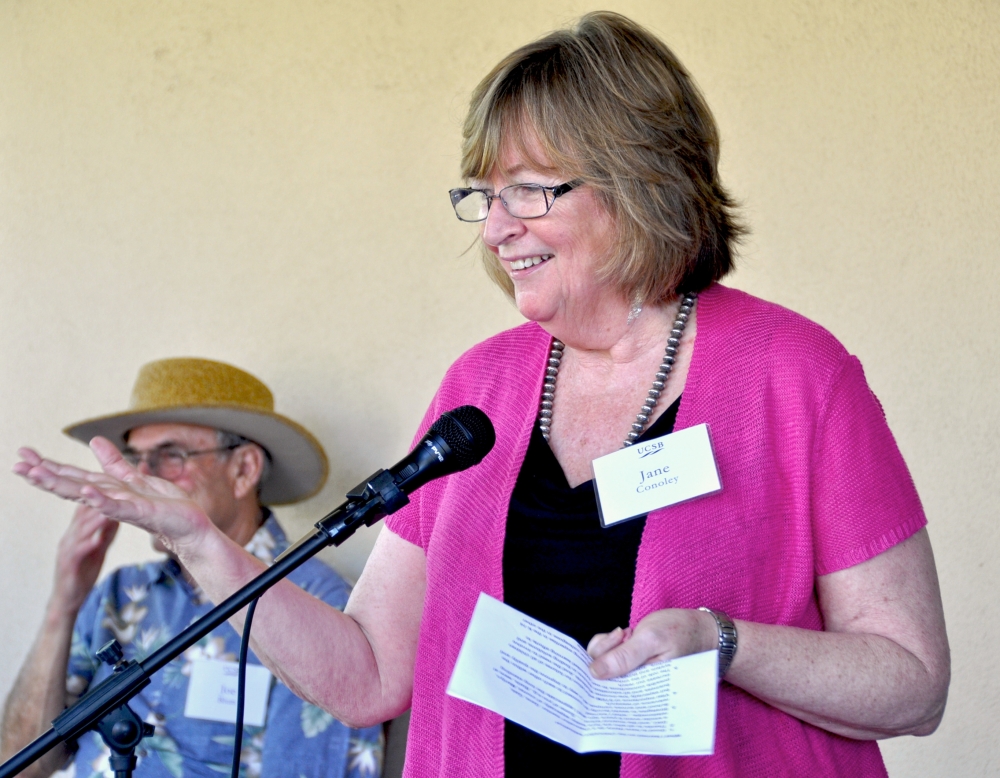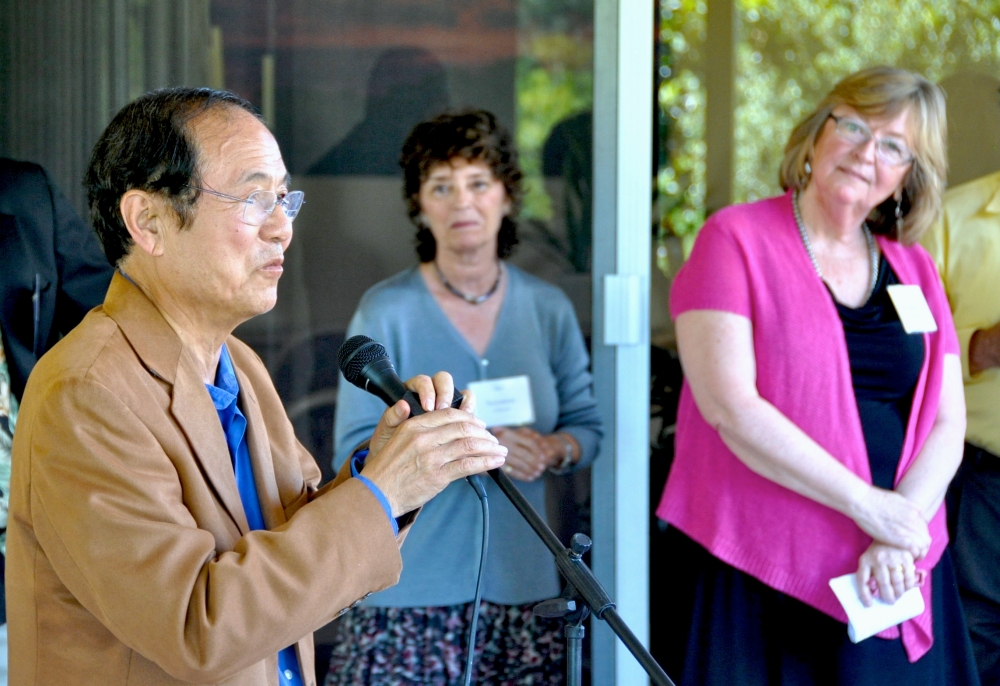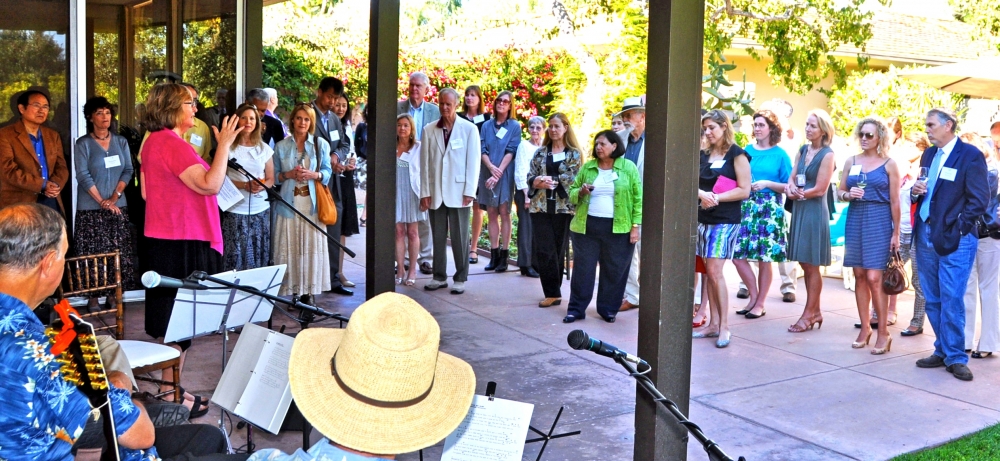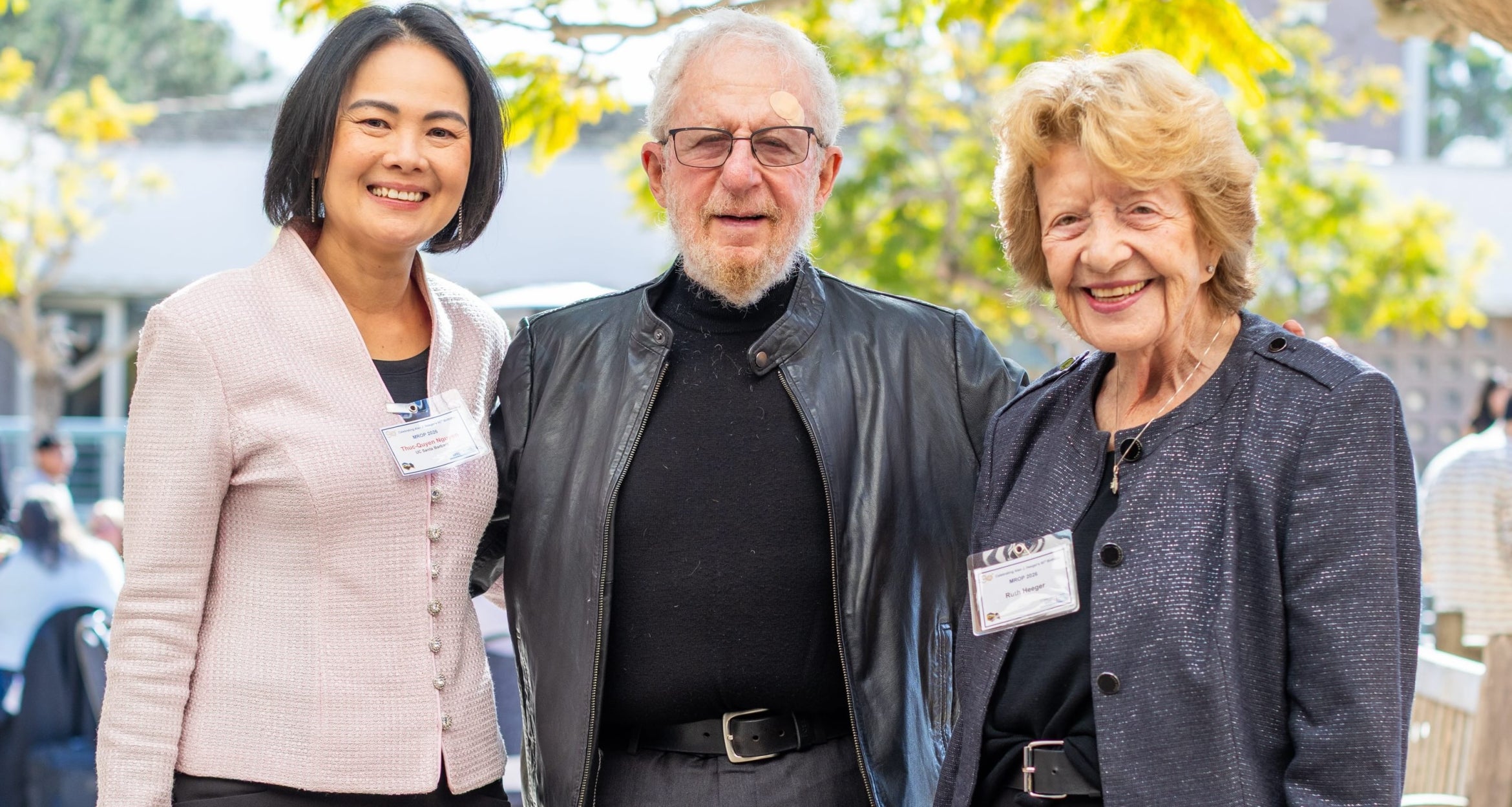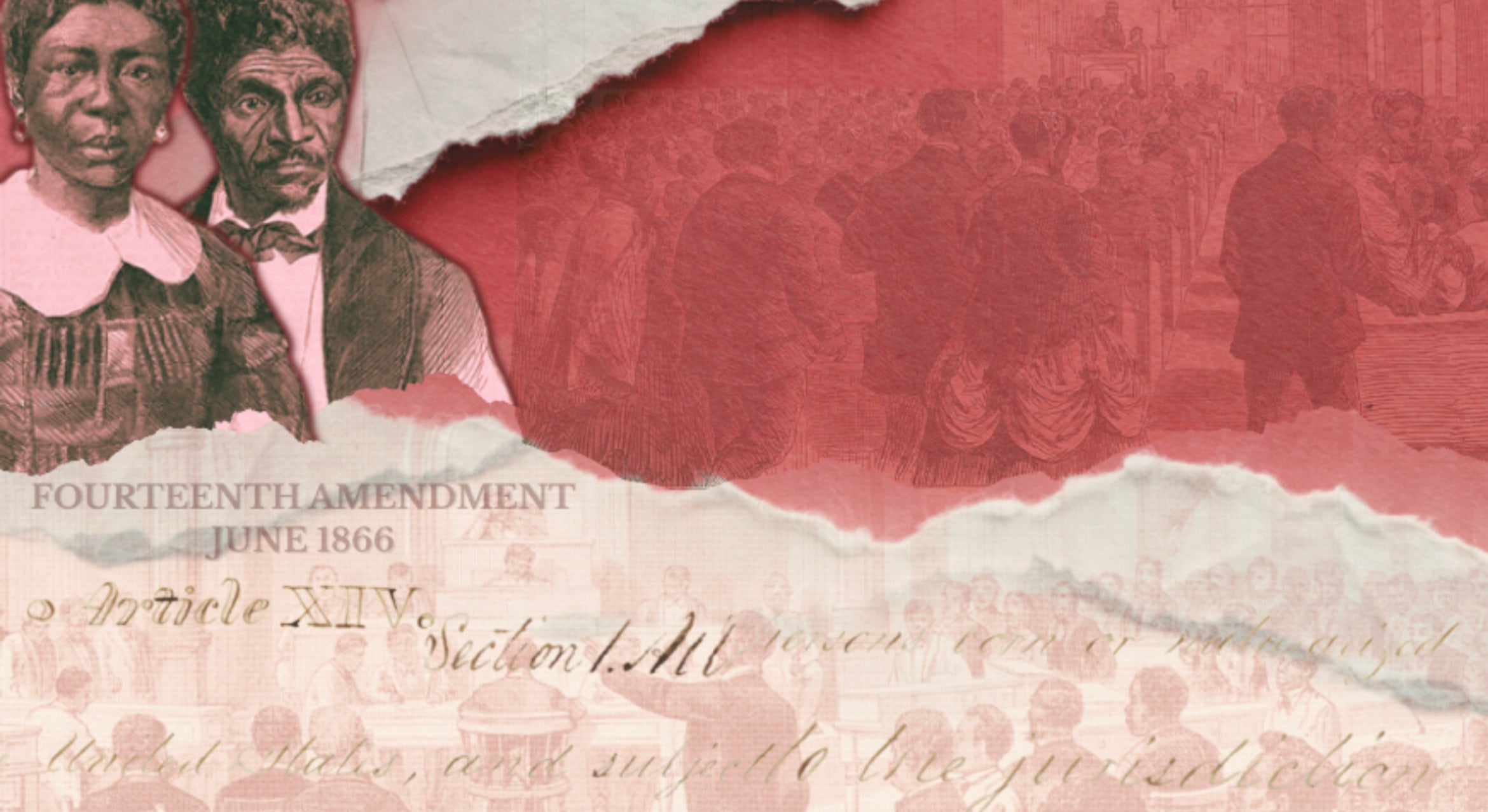Q&A With GGSE Dean Jane Close Conoley
Jane Close Conoley recently returned to UC Santa Barbara and her position as dean of the Gevirtz Graduate School of Education after serving as interim chancellor at UC Riverside. George Yatchisin, communications coordinator for the GGSE, interviewed the dean after her return.
What has it been like going back to being a dean after having served as a chancellor?
Dean Conoley: I don’t have any feeling of just being a dean versus being a chancellor because the work I do here is very engrossing and very involved. I suppose I do miss the broad sweep of information that I had as chancellor, but the truth is our school keeps me pretty busy. And there are certain decisions I’m glad I don’t have to make, such as those involving certain capital programs. I don’t miss that part, being in an almost brand new building and having all of that taken care of.
What are the biggest differences between your roles as GGSE dean and as UCR’s interim chancellor?
Dean Conoley: You know, the jobs are more similar than they are different. A dean is ultimately responsible for the academic and financial programs of his or her school, for the space the school occupies, for interactions with students, alumni and donors and, certainly, for fundraising. All of that is very similar to what a chancellor does. The biggest difference is really the sweep of the responsibility. For a chancellor, the array of issues is broader. You worry, for example, about the police department. You worry about relationships with the city. There’s a lot more state political interaction. As a dean, I do a lot at the federal level to advocate for research funding, but I do almost nothing at the state level. And that’s where chancellors are most active. Another difference is that as the UCR chancellor I met quite often with the other UC chancellors so I had opportunities to hear and learn what was going on at their respective campuses. That was quite eye opening and informative. I also attended Regents’ meetings every month or so and those proved equally informative.
What’s the one thing you had as a chancellor that you wish you had as a dean?
Dean Conoley: As a chancellor I had a very extensive team of people who were in charge of their respective areas — student affairs, or facilities, or computing — and it was a great feeling to be surrounded by people who were committed to success. And while they may have sought input from the chancellor’s office — they had a degree of autonomy. They took ownership of their work and of their outcomes. I think our financial issues over the years [at UCSB] have created a situation in which each team member is doing five or six different things. And although I have a great team here, there is a sense of people being pulled in a million directions.
Maybe the other thing I appreciated as chancellor was the easy access. I was invited to everything — student plays, athletic events, donor events — and I found it really satisfying. In addition, I traveled to New York, Washington, San Diego, Los Angeles, San Francisco, Orange County and elsewhere to meet with alumni and learn about their successes. I enjoyed that tremendously. That’s a real test of how well a university is doing: What are the alumni doing? I miss that aspect, but it’s something I hope to re-create at GGSE. I saw close up the power of that situation.
Working as an interim chancellor had to be quite a balancing act. You’re in charge of a university, but you know from the beginning you won’t be for long. How did you find the right balance?
Dean Conoley: I received some valuable advice from the UC president [Mark Yudof]. Under the direction of the previous chancellor, UCR had developed a strong strategic plan, and the president’s advice, really his admonition, was “follow the plan, don’t go in there with a whole new idea.” That was crucial. On one level the initial conversations I had with the vice chancellors and the deans really came down to one goal — that we not miss a step on the plan. We knew the plan and we knew the benchmarks, and that provided a very helpful framework.
In every other way, however, I tried to act as though I were the permanent chancellor. I thought that simply being a caretaker would not move the university forward. There were a host of issues I could have left to the next chancellor, but I chose not to do so. For example, we reorganized some vice chancellor portfolios, we made decisions on solar arrays. The only thing I didn’t do was to make major financial commitments because I thought the next chancellor would prefer having as much financial flexibility as possible.
And based on the feedback I received, people liked that I did not act as an interim chancellor. They appreciated that I was really engaged and moving forward with them and listening to them. A previous chancellor had announced upon arrival that the strategic plan meant to be in place through 2010 should just be removed from the building — this chancellor didn’t want to even look at it. That was a cautionary tale for me because everyone remembered the campus’s collective dismay when that happened. A university’s strategic plan is created through the hard work of a lot of people and being dismissive of it is neither useful nor respectful.
We did have some pressing matters. Most cogently on people’s minds was whether we could finally get public funding for the new four-year medical school. The previous chancellor had worked on it unsuccessfully for two years, although he had negotiated certain positive things associated with it, so there was no waiting. The school opened in August so we needed $15 million. I couldn’t put that off hoping the next guy or gal would come along and procure it.
I have to say I was very much primed to remain at UCR until December or January. Chancellor Yang had warned me that might be the case. He said finding a new chancellor was rarely accomplished within a six- or seven-month period. But by July, when I knew the permanent chancellor had been named, I did slow down on a few things. I thought, “OK, the new guy will be here in August, so I don’t have to handle every single thing,” and a couple of those were difficult personnel decisions. I decided I didn’t have to resolved every difficult personnel issue before I left, but I certainly handled quite a few.
Don’t economic times like these in California make being a chancellor a relatively thankless job?
Dean Conoley: It didn’t feel thankless at all. The community in Riverside and its surrounding towns and cities are very connected to UCR, and on many occasions people would realize who I was and just come up and thank me for doing the job. Clearly that part of California has been hit hard and has recovered more slowly from the economic downturn of the last five years, but I was fortunate that upon my arrival Proposition 30 had recently been passed so I wasn’t faced with the daunting task of another year of cuts.
What role does teaching play in your vision of a research university? And what role does a dean or a chancellor have in helping to shape that vision?
Dean Conoley: The dean has a close up and personal role in the recruitment and retention of faculty and the tenure of faculty. We’ve taken a pretty strong stance at UCSB — and at GGSE, more specifically — about the weight and importance of teaching excellence, and I really sought to communicate that teaching and research are not separate functions. We bring students to UC so they will have opportunities to conduct research alongside faculty members. Some of these research opportunities will occur through classes, some through independent studies and other activities. But it’s important to communicate that in many ways it’s a false dichotomy between teaching and research, because we’re all still trying to figure things out. If we imagine teaching as just the transmission of known facts, then the students can just as easily learn them online. Why have them at a prestigious UC? I see the role of the dean as being closer to the mechanics of that, and sometimes having to make tough decisions, especially around tenure or promotion, sending messages to faculty about what’s important and taking time to celebrate the people who have the whole portfolio. A chancellor is a bit more distant but has a bigger bully pulpit in a way. So when speaking with parents I would always emphasize that connection as the reason why a research-intensive university promises excellent teaching.
From your perspectives as a dean and as a chancellor, what do you consider the most challenging issue for higher education today?
Dean Conoley: Money would be too easy an answer but it is one of the most vexing issues. The thing that vexes me, though — and it’s related to the funding situation — is a loss of confidence in the educated individual and in the importance of education. We have become so vocationally driven that the questions always become, “What will I do with that degree? Will I make money? What’s the salary?” These are all legitimate questions, and no one should be misled about what the initial salary for someone who is majoring in, say, ethnic studies might be. But at the same time, we as an American society have begun to drift away from the notion that to educate people is an end unto itself. Especially in today’s world of changing careers and new opportunities and globalization, whether you’re an art history major or a computer science major, you might end up doing many different things. In the United States we have a kind of commercialization of education that I think will not support our leadership position in the world. You see many studies, certainly from scholars in the humanities, asking what employers really want. The bottom line is they want people who can communicate, who can write, who can work cooperatively. They want more than just the hard skills related to engineering or computer science or math or chemistry. Even with a vocational focus we have to recognize the importance of educating the whole person for success. We will never make the next big discoveries in any field if we think of education only in terms of “How will this translate into my first job?”
I think the problem is fueled by a political polarization here in the United States that focuses on individual issues and is suspicious of academic freedom, suspicious of studies of pluralism or multiculturalism and suspicious of critical thinking. It’s related to the broader political reality in the United States that a certain fundamentalism, a narrowing of acceptable thought, has gained some traction.
How does your experience as interim chancellor make you a better dean going forward?
Dean Conoley: That will be for others to say, but I think the experience has widened my vision a bit in terms of what I think we should be doing. Examples would be trying to push the boundaries of new relationships in the community and across the country with alumni. Also, I have talented people surrounding me, and I would really be happy for them to take on issues and projects and run with them. I don’t see myself as the guiding force, but rather that I am creating the climate in which people feel empowered to try new things and bring up new initiatives. I’d like to give people more autonomy in their work but also hold a little bit higher expectations, too, about outcomes.
